Composting for a Healthy Garden: Using Organic Fertilizer to Grow Fruits and Vegetables

The Benefits of Composting
Composting is a process of breaking down organic materials such as food scraps, paper, and yard waste into a nutrient-rich fertilizer. It has many benefits, both for the environment and for your garden.
- Composting helps reduce the amount of waste that ends up in landfills, which can reduce methane emissions that are harmful to the environment. It also helps reduce water pollution since the nutrients from composted material are released directly into the soil instead of running off into streams and rivers.
- Composting also helps your garden by providing nutrients to the soil that would otherwise be missing. The compost provides essential nutrients like nitrogen, phosphorus, and potassium that plants need to thrive. Compost also adds organic matter to the soil, which helps retain moisture and makes it easier for plants to absorb nutrients from the soil. Finally, it also adds beneficial microbes and fungi to the soil that help break down organic matter and keep the soil healthy.
Composting yourself is a great way to recycle organic materials that would otherwise go to waste while helping your garden at the same time. It’s easy to set up a compost bin in your backyard (or countertop) and you’ll have access to fresh, nutrient-rich compost whenever you need it. So let's dive into how to compost - no matter where you live!
What Can You Compost?
Many things you eat can be composted. Kitchen scraps, including vegetable peels, fruit and vegetable cores, eggshells, tea bags, and coffee grounds, are all great ingredients for composting. For those with a yard, even your yard waste makes fantastic compost! You can collect grass clippings, weeds, and leaves to add to your composting pile. These all break down, providing essential nutrients to the soil and your plants.
In addition to these traditional items, there are many other things that you can compost, including:
- Paper products like newspaper and cardboard, as long as they are shredded or torn up into small pieces. If you have a paper shredder, put it to good use and shred some mail and toss it in your compost pile.
- Hair and fur from pets! Yes, we know it sounds a bit gross, but hair is a fantastic source nitrogen, carbon, oxygen, and sulfur.
- Nut shells like almonds, walnuts, and pecans
- Cotton and wool fabrics. This one may be tricky since many of our clothing items now contain inorganic materials, but for any 100% cotton or wool items you may be thinking of throwing out, try cutting them up and adding them as well.
Remember to avoid adding any animal products such as bones, fat, oils, or dairy products to your compost pile, as these can attract pests and create foul odors. Additionally, avoid adding anything that has been treated with chemicals, such as treated wood chips.
When adding new items to your compost pile, make sure to mix them in with existing materials for even breakdown. Also make sure to keep your compost pile moist but not overly wet. With a little bit of care, you can have a rich source of nutrients for your garden in no time!
Favorite Composting Bins
When it comes to composting, there are a few different options available to fit your needs and lifestyle. If you have a larger yard and would like to do outdoor composting, then you may want to consider a compost bin. These come in many different sizes and styles, so you can pick one that works for the amount of space you have available. Many outdoor compost bins are easy to assemble and can be used right away.
Here are a few well-rated options:

If you live in an apartment or don’t have much outdoor space, then you may want to look into a countertop compost bin. These are designed specifically to fit on kitchen counters, making them ideal for those living in smaller homes. Countertop compost bins come in all shapes and sizes and often come with filters or carbon filters to help eliminate odors. Many countertop compost bins also come with lids, so you can easily keep the contents out of sight and smell.
For countertop compost bins, here are some top-notch options:
Regardless of which type of composting bin you choose, it’s important to make sure that it’s easy to use and access. The bin should also be well-ventilated so that the composting materials can breathe and decompose properly. Additionally, make sure that whatever type of composting bin you use is waterproof or moisture-resistant, so that your compost won’t become waterlogged and end up slimy.
Using Your Compost
Once you have your compost ready to go, there are a few different ways you can use it in your garden.
- Mixing It In With Your Existing Soil: One of the easiest and most effective ways to use your compost is to mix it into your existing soil. If you are starting a new garden, this is an excellent way to introduce nutrient-rich compost into the soil from the beginning. For existing gardens, adding compost to your soil will help increase its fertility and improve drainage.
- Layering on Top Around Plants: Another way to use your compost is to layer it around existing plants. You can spread a thin layer of compost around each plant and lightly work it into the soil. This will give the plants an extra boost of nutrients, helping them to grow stronger and healthier.
- Using Compost Tea: If you want to take your gardening game to the next level, you can use compost tea! Compost tea is made by soaking compost in water overnight and then straining out the solids. The liquid that remains is full of beneficial bacteria and fungi that can help strengthen and support plants. To use compost tea, dilute it with water and then spray it directly on leaves, or use a watering can to apply it to the soil around plants.
Using your compost doesn’t have to be complicated. Just remember that compost should never be applied too heavily as it can burn plants or overwhelm them with nutrients. With a light hand, you can use your compost to help your garden flourish!

Using Organic Fertilizer
Want to skip the hassle of composting but still provide your plants with nutrients in an organic and eco-friendly way? Try an organic fertilizer instead! Organic fertilizers are an excellent way to ensure that your plants get the nutrients they need. While some organic fertilizers may be a bit more expensive than their artificial counterparts, the benefits are worth it.
Organic fertilizers are made from natural sources such as animal manure, seaweed, compost, and other natural ingredients, which can be more gentle on the soil than synthetic fertilizers. They usually contain a variety of micronutrients that help boost plant growth, such as phosphorus, potassium, nitrogen, and other elements. Additionally, organic fertilizers are typically slow-release, meaning that they slowly break down and release their nutrients over time. This is great for plants as it helps them absorb nutrients at a steady rate, allowing them to access all of the nutrients they need.
Organic fertilizers can come in various forms, such as granules, pellets, or liquids. Depending on the type you buy, you can apply them either directly to the soil or as a spray. For best results, always follow the instructions on the packaging to ensure that you apply the fertilizer correctly and at the right time. They are a great way to give your garden the nutrients it needs without introducing harmful chemicals into your soil. With a little research, you can easily find an organic fertilizer that will work well for your specific plants and help keep your garden healthy and flourishing. To ensure that your organic fertilizer is of the highest quality, it's important to purchase a fertilizer with the OMRI seal of approval.
OMRI stands for Organic Materials Review Institute and is an independent, nonprofit organization that reviews products for use in organic production and processing. Any product that has been approved by OMRI has been independently tested to meet rigorous standards set by the USDA’s National Organic Program and the Canadian Organic Standards. When you purchase a product with the OMRI seal of approval, you can be sure that it is free of synthetic pesticides, GMOs, sewage sludge, and more. Additionally, these products are third-party tested for effectiveness and safety, so you can trust that you’re getting a product that will nourish your plants without compromising their health or the environment.
Composting and using organic fertilizer is an excellent way to maintain a healthy garden while minimizing your impact on the environment. With these methods, you can ensure your garden is healthy and sustainable while producing healthy, chemical-free food for your family to enjoy. Whether you're living in an apartment with a balcony container garden, or on a large plot of land in rural America, taking small steps like composting yourself or using organic fertilizer go a long way in helping further sustainable farming practices, which are vital in combating environmental damage.



